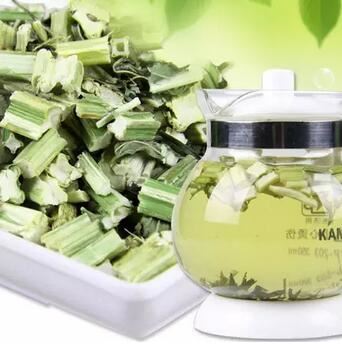Those who have a slight understanding of health preservation know that women should not drink Tea during their menstrual period. Why is this so?
One: Drinking Tea Causes Iron Loss
During the menstrual period, women experience significant blood loss, including the loss of iron, an important element for the synthesis of hemoglobin. The tannic acid in tea binds with iron molecules in food, forming precipitates that make it impossible for the body to absorb them, thus failing to replenish iron. Drinking strong tea during menstruation is a big taboo.

Two: Worsening Constipation Symptoms
Women often suffer from constipation during their menstrual cycle. Tannic acid in tea not only interferes with iron absorption but also slows down intestinal peristalsis, making it more difficult for stool to pass through the intestines.

Three: Exacerbating Menstrual Syndrome
Most women experience headaches, back pain, breast tenderness, dysmenorrhea, and lower abdominal discomfort during menstruation, along with mood swings. Drinking tea can worsen these symptoms.
Women lose a lot of blood during menstruation and need nourishing foods to replenish lost energy. Foods rich in iron, such as black fungus, black chicken, longan meat, and dates, are helpful for replenishing blood.

Outside of the menstrual period, women can drink some health-preserving teas that help alleviate dysmenorrhea and regulate menstruation!
Leonurus Tea
Leonurus has the effects of promoting blood circulation, removing blood stasis, regulating menstruation, and reducing edema. It can be used to treat irregular menstruation and abdominal pain due to blood stasis. Leonurus tea effectively adjusts menstrual disorders, alleviates the discomfort caused by dysmenorrhea, and protects the uterus, beautifies the complexion, and improves sleep quality. It is also beneficial for postpartum recovery. Avoid drinking leonurus tea during menstruation, and women with yin deficiency and low blood levels should avoid it.

Rose Tea
Rose flowers have a sweet, slightly bitter taste and a warm nature. They can relieve qi stagnation, promote blood circulation, and alleviate blood stasis and menstrual pain. Additionally, rose flowers can nourish the heart and liver meridians, soothe emotional distress, and have calming, soothing, and antidepressant effects. Rose tea can also beautify the face and brighten the skin. Regular consumption of rose tea is effective for menstrual irregularities and breast tenderness, and can also help stabilize emotions.

Red Sugar Ginger tea
Red sugar ginger tea indeed has warming effects on the uterus, promotes blood flow, and alleviates dysmenorrhea. Ginger was considered a health tonic in ancient times, capable of warming the stomach and treating flu. Red sugar has the benefits of replenishing blood and qi, promoting blood circulation, warming the spleen and strengthening the stomach, and relaxing muscles. Red sugar + ginger tea = a perfect match.

Women who experience menstrual discomfort can regularly drink rose tea and red sugar ginger tea. Long-term consumption can improve menstrual irregularities and dysmenorrhea.
Gentlemen, please share this with your loved ones!